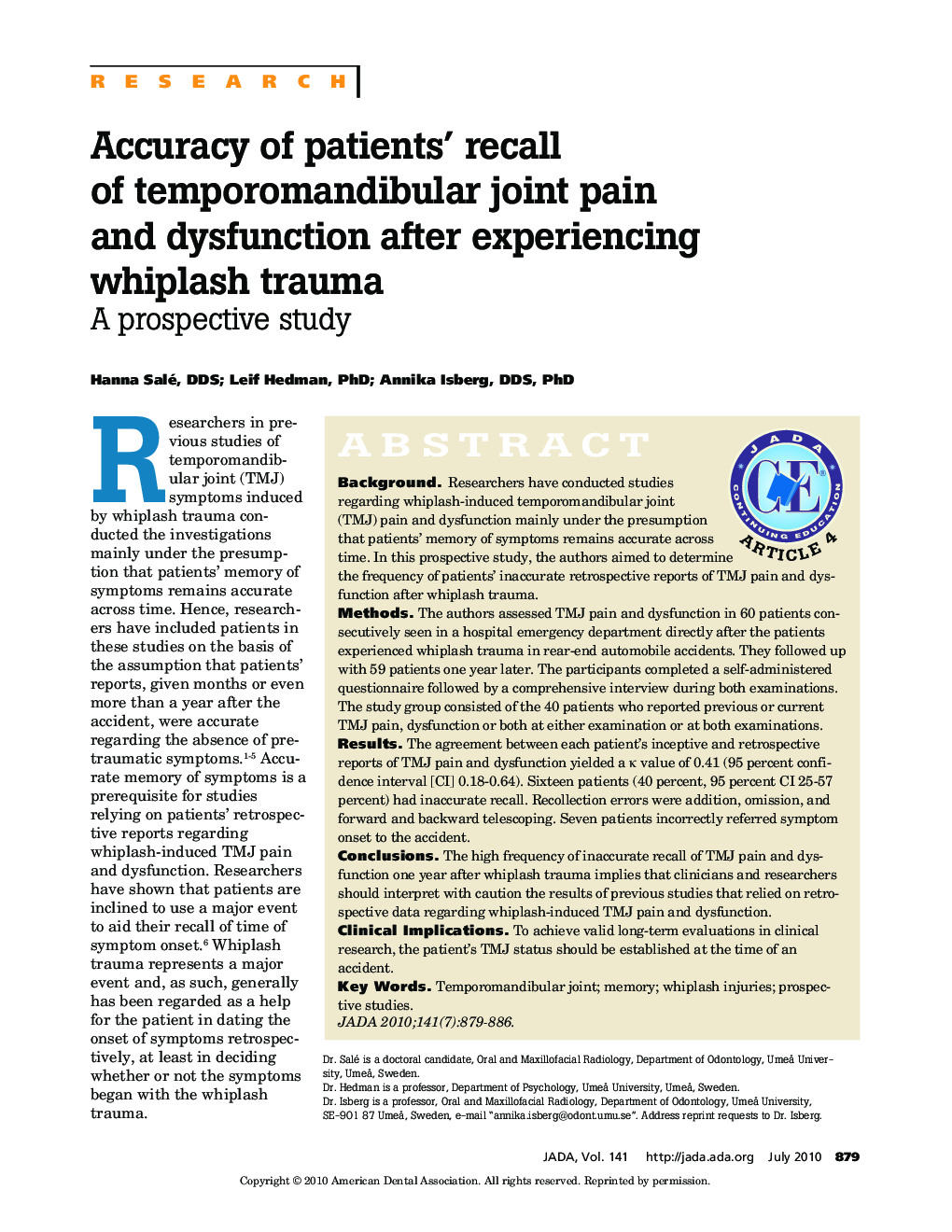| Article ID | Journal | Published Year | Pages | File Type |
|---|---|---|---|---|
| 3138739 | The Journal of the American Dental Association | 2010 | 8 Pages |
ABSTRACT BackgroundResearchers have conducted studies regarding whiplash-induced temporomandibular joint (TMJ) pain and dysfunction mainly under the presumption that patients' memory of symptoms remains accurate across time. In this prospective study, the authors aimed to determine the frequency of patients' inaccurate retrospective reports of TMJ pain and dysfunction after whiplash trauma.MethodsThe authors assessed TMJ pain and dysfunction in 60 patients consecutively seen in a hospital emergency department directly after the patients experienced whiplash trauma in rear-end automobile accidents. They followed up with 59 patients one year later. The participants completed a self-administered questionnaire followed by a comprehensive interview during both examinations. The study group consisted of the 40 patients who reported previous or current TMJ pain, dysfunction or both at either examination or at both examinations.ResultsThe agreement between each patient's inceptive and retrospective reports of TMJ pain and dysfunction yielded a κ value of 0.41 (95 percent confidence interval [CI] 0.18–0.64). Sixteen patients (40 percent, 95 percent CI 25–57 percent) had inaccurate recall. Recollection errors were addition, omission, and forward and backward telescoping. Seven patients incorrectly referred symptom onset to the accident.ConclusionsThe high frequency of inaccurate recall of TMJ pain and dysfunction one year after whiplash trauma implies that clinicians and researchers should interpret with caution the results of previous studies that relied on retrospective data regarding whiplash-induced TMJ pain and dysfunction.Clinical ImplicationsTo achieve valid long-term evaluations in clinical research, the patient's TMJ status should be established at the time of an accident.
